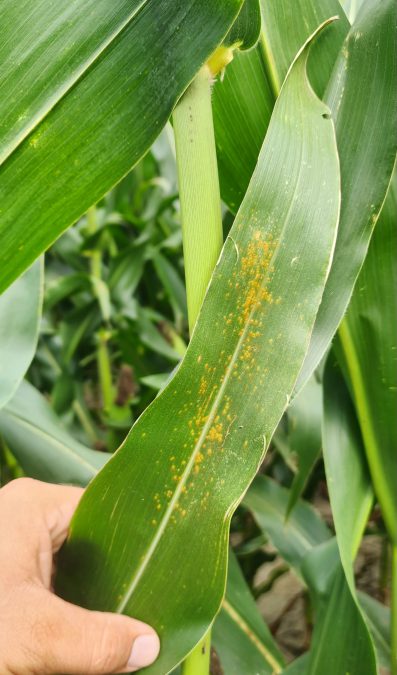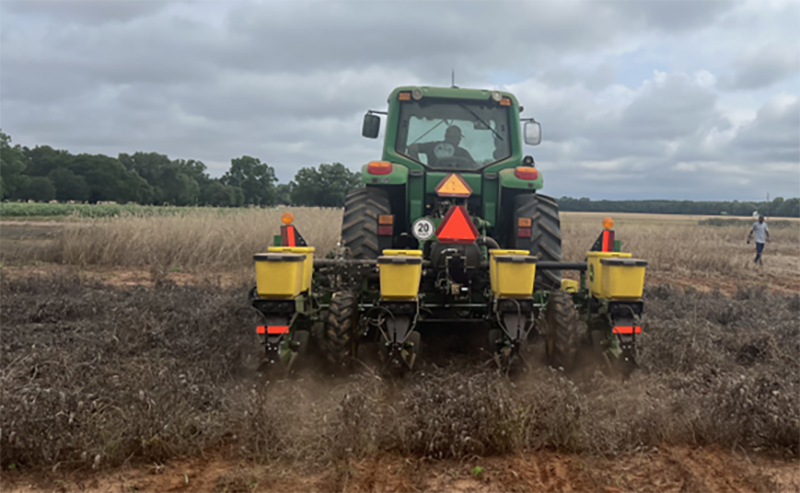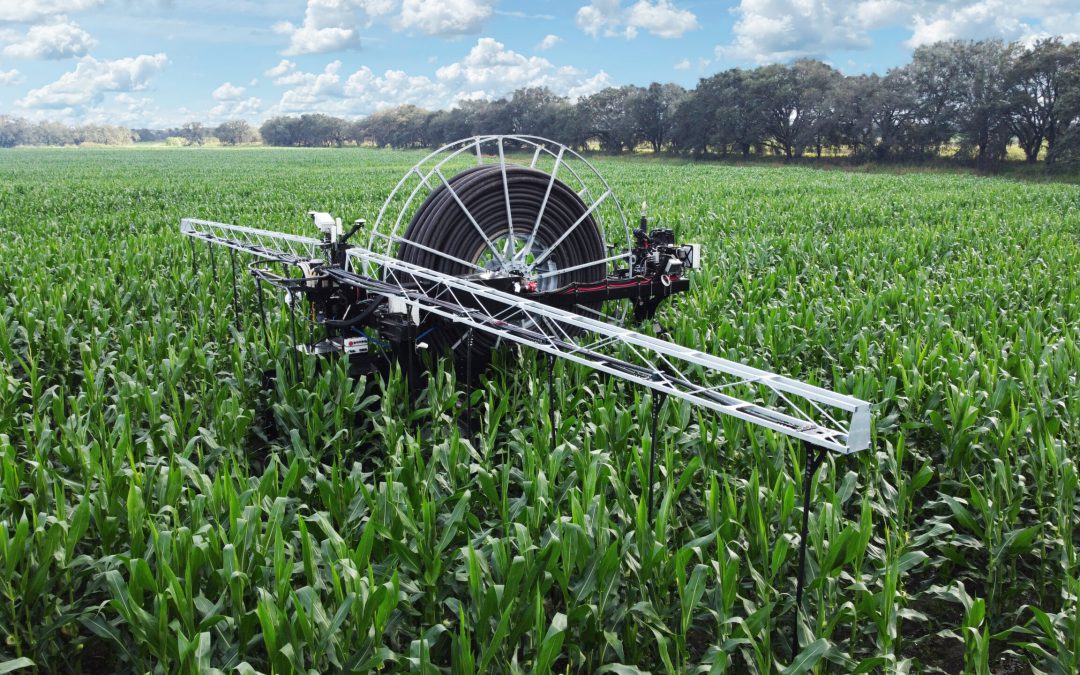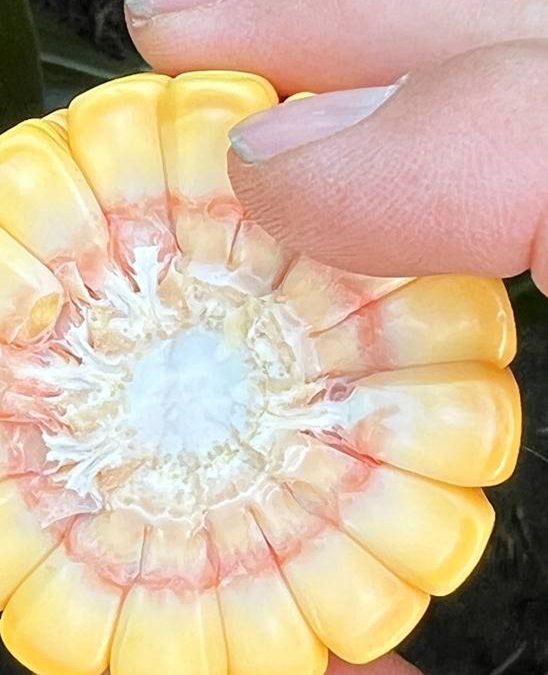
by Ethan Carter | Jun 9, 2023
Ethan Carter, UF/IFAS Extension Regional Specialized Agent Row Crop IPM; Dr. Bob Kemerait, UGA Plant Pathologist, Dr. Ian Small, UF/IFAS Plant Pathologist Many of the Panhandle’s March planted corn fields are now well into tassel stage (VT). From tassel to milk...

by Hardeep Singh | Jun 2, 2023
Florida Best Management Practice (BMP) programs have increased use of cover crop technologies in the Florida Panhandle. Winter cover crops are crops planted in late summer or early fall to provide winter soil protection and ground cover or green manuring for...
by Nicholas Dufault | May 19, 2023
Blights, spots and rusts; oh my! It is getting to that time of year when we start to see diseases showing up in corn and begin to wonder if we should spray a fungicide or not. Southern rust is an explosive and damaging corn disease in which fungicide applications can...

by Doug Mayo | Feb 24, 2023
This week’s featured video shares an innovation for crop irrigation. Rain 360 is an autonomous (self-driving) irrigation unit that can apply up to 1/2″ of water per week in a 160-acre field, 3/4″ per week in a 100-acre field, or 1″ per week in...
by Mark Mauldin | Feb 10, 2023
The second annual Panhandle Corn & Soybean Update took place in Chipley last Friday. The event was a great success, with standing room only in the classroom. Attendees received updates on: 1) Weed, 2) Insect, 3) Disease, and 4) Fertility management strategies in...

by external | Jul 1, 2022
Rome Ethredge, UGA Interim Grains and Soybean Agronomist This time of year, and with this heat, corn is moving rapidly towards maturity. The photo below shows a field of corn planted March 1st that is Denting and at Quarter Milkline, it has accumulated 2500 growing...





